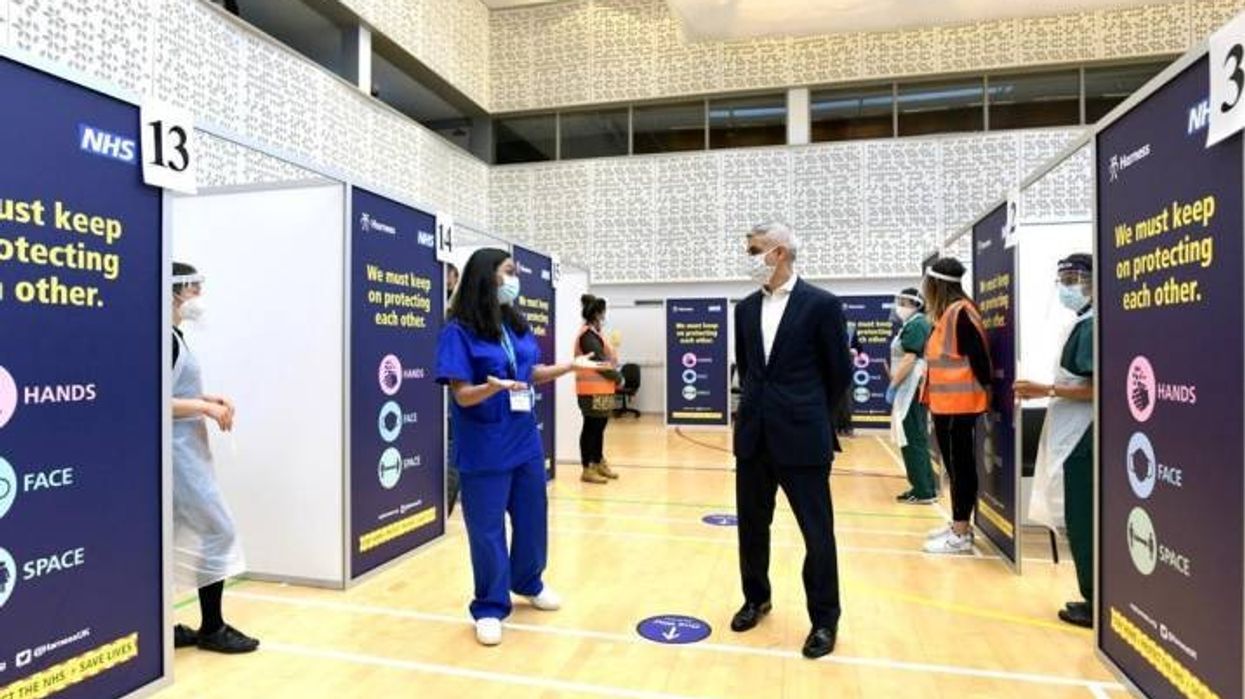by LAUREN CODLING
LONDON mayor Sadiq Khan has reiterated the importance of ethnic minority communities engaging with the coronavirus vaccine programme, as he visited a new NHS immunisation centre at a temple in the city last Thursday (4).
Khan hopes the new immunisation hub at Kingsbury Temple in northwest London will reassure local ethnic communities that the vaccine is safe. Addressing Eastern Eye readers, he said: “To anybody reading this: who do you trust? Your GP, your pharmacist or religious leader? Ask any one of them about the facts and they’ll tell you it’s safe. And by taking the vaccine, you’re more likely to make yourself, your family and community safe.”
In recent weeks, evidence has shown that ethnic minorities are least likely to engage with the Covid vaccination programme. According to a study from the Office for National Statistics last month, eight per cent of 460 Asian or Asian British adults said they would be unlikely to get a jab.
During his visit to the new vaccine hub, Khan met representatives from the mandir, the NHS clinical team administering the vaccine, and patients who had the jab. A number of other places of worship have offered their spaces to become vaccination centres. The Al-Abbas Islamic Centre in Balsall Heath, Birmingham, was the first mosque in the UK to open its door to patients in January.
Khan spoke of his hope that more religious buildings in the capital will imminently become vaccination hubs. “Now that the Kingsbury temple has set out how it can be done successfully, it provides a template for other places of worship to do the same,” he said.
Since the vaccine roll-out began late last year, it has been found that most anti-vaccine content has been spreading across messaging service WhatsApp and social media networks such as Twitter and Facebook.
During a call with Sir Keir Starmer last month, the Labour party leader urged ministers to take much stronger action against those spreading misinformation about the vaccine on social media sites. Khan agreed, although he said action should be taken against the platforms themselves. “The social media platforms are really quick to take action when it comes to people infringing copyright so I don’t understand why they’re so reluctant to take action against people whose actions are leading to lives potentially being lost,” Khan said. “I think it’s important that social media platforms step up.”
Since the pandemic broke in the UK last March, studies have consistently shown BAME groups were at higher risk of infection and death from Covid-19.




